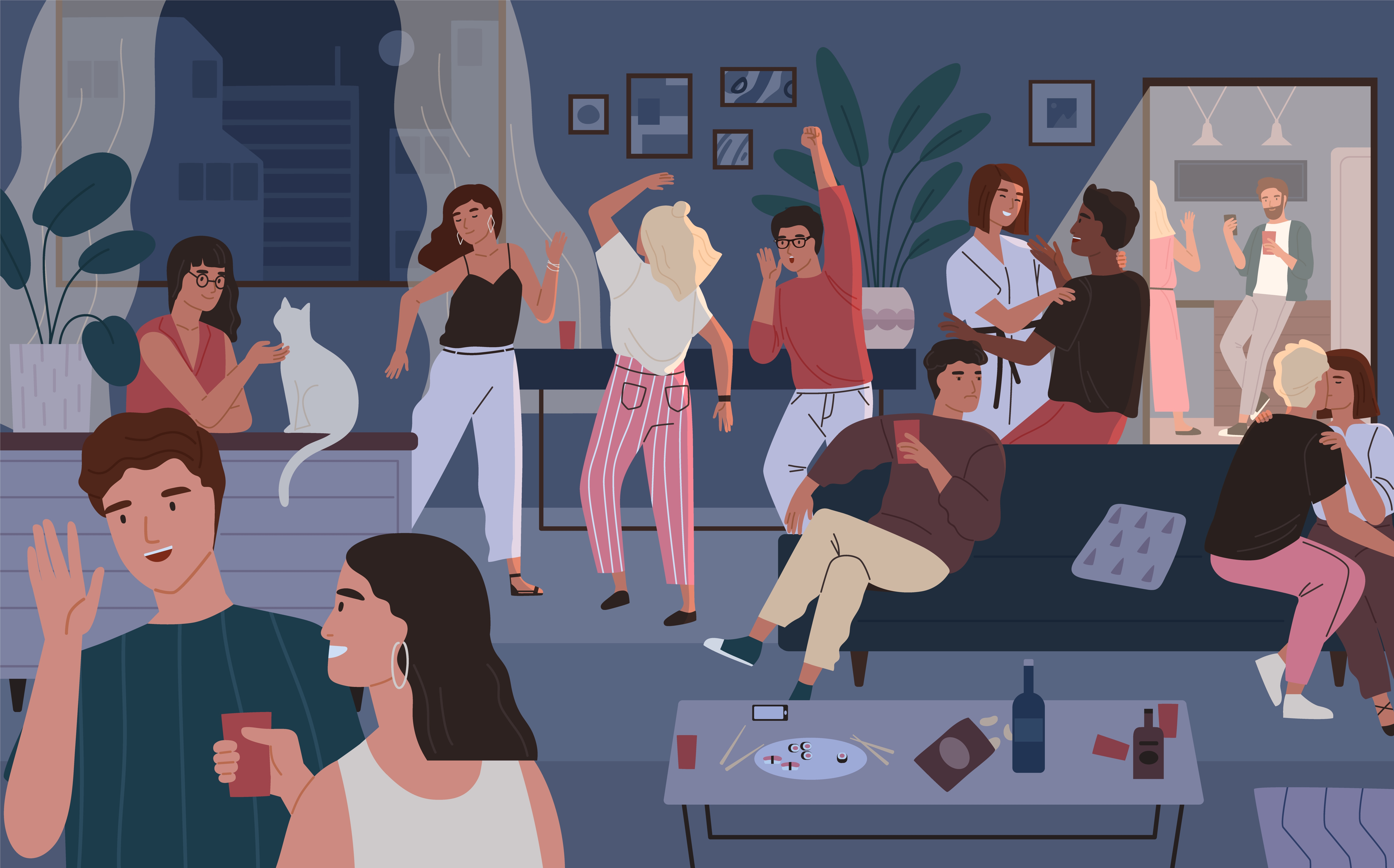Ever gotten home from a day that involved too much socializing or networking and just needed to tune everyone out and escape into hours of Netflix (or complete silence)? The truth: We’ve all been there. Connection has wonderful benefits, but oversocializing can take its toll — leaving us stressed, wired, or just plain depleted.
And while people assume that only introverts feel these effects, that’s not the case. Whether you’re an introvert who thrives in quieter settings, an extrovert who craves regular interaction, or an ambivert, who can lean either way, here are some solutions to “socializing stress” based on your exact personality type.
If you’re an introvert…
Research shows that when you’re naturally introverted, being with others could drain your energy instead of restoring it. To counteract this, make sure you “bookend” any periods of heavy social interaction with some alone time before and after, suggests Michael Alcée, Ph.D., a clinical psychologist. “Introverts need privacy and freedom from distraction in order to truly thrive.” If there’s an office birthday party at 5 p.m., try to avoid scheduling any meetings in the hour before, so you’re not going into the event already feeling collaboration burnout. And when the party is done, don’t rush into another big social moment. Take a beat to unwind and replenish your batteries.
If you’re an extrovert…
If you’re typically the outgoing, bubbly person in social settings, you may feel you need to always be “on.” So even if you tend to get energized when you’re with other people, the pressure to be amusing and make everyone else comfortable can become a source of stress over time. One way to combat this it to remind yourself that you aren’t responsible for others’ happiness and good time. Give yourself permission to attend gatherings without taking on the role of “host” or “entertainer.”
If you’re an ambivert…
While many think of these personality traits in black and white, there’s actually a grey area that a lot of people fall into. It’s called being an ambivert, which is a healthy mix of both introverted and extroverted ways. According to research by Adam Grant, Ph.D., a psychology professor at The Wharton School at the University of Pennsylvania, one drawback to being an ambivert is that it can sometimes be difficult for these types to know which side of their personality needs to be honored in a given social situation. To prevent socializing stress if you’re an ambivert, mindfulness is really key. Without self-awareness, you may enter into a situation not knowing whether you need more interaction or solitude in that moment. Bottom line: Be choosy about which social events you attend, and how much you exert yourself when you’re with people. “Don’t feel guilty,” Alcée says. “Ambiverts need to be recharged both internally and socially to be functioning optimally.”
Follow us here and subscribe here for all the latest news on how you can keep Thriving.
Stay up to date or catch-up on all our podcasts with Arianna Huffington here.


